View all Standards for Alberta, Canada
15 initiate a dramatic situation in response to a given stimulus
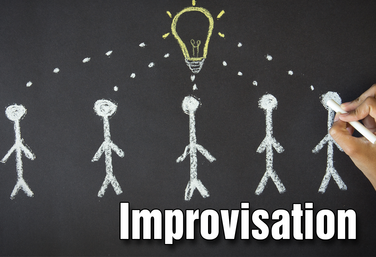
UNIT
Part of the Drama One Curriculum
Improvisation
by Karen Loftus
Students sharpen their listening and reaction skills through improv games, exercises, and scenes. They will learn five specific guidelines to apply to their improvisation: accept the offer, bring information to the scene, make active choices, make your partner look good, and don’t force the humour.
There are so many different ways to approach a unit on improvisation. Keep in mind that you will have students who are really excited about this unit and some students who dread it. It’s best to start with low-risk games and exercises and then build up to higher-risk ones. Low-risk games in this situation mean partnered interactions that aren’t shared with the whole class.
Read More
about Improvisation
Read Less
about Improvisation
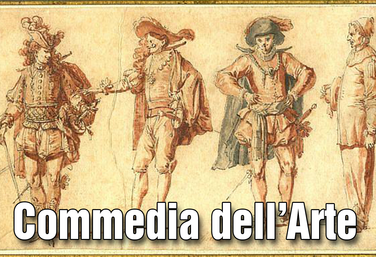
UNIT
Part of the Drama One Curriculum
Commedia Dell'Arte
by Karen Loftus
Students will discover, analyze, and explore the history, characters, and style of commedia dell’arte.
Commedia dell’arte is a theatre history unit mixed with improvisation, physicalization, and exploring specific characters. In this unit, we’re going to focus on three main aspects:
1. Causes and Effects of Commedia (History)
2. Stock Characters
3. Commedia Performance Practices
Read More
about Commedia Dell'Arte
Read Less
about Commedia Dell'Arte
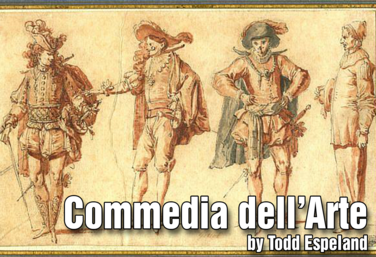
UNIT
Commedia dell'Arte
by Todd Espeland
Commedia dell’arte is a 16th century masked acting form. It is the basis of all comedy, including all tv sitcoms. This form is characterized by masked types and archetypical characters and a specific way of playing comedy. To that end, this unit is divided into two parts.
Part One focuses on the foundations of commedia - playing comedy. These principles will be important to learn when it comes to developing commedia characters, specifically the physicality of the characters. Part Two will cover lazzi.
Note: there are links to video demos in many of the lessons of this unit.
Read More
about Commedia dell'Arte
Read Less
about Commedia dell'Arte
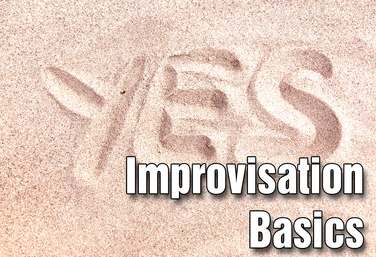
UNIT
Part of the Middle School Curriculum
Unit Two: Improvisation Basics
by Lindsay Johnson
In this unit, students will learn, practice and apply three important rules of improv: accepting and building on offers, quick thinking, and strong offers. For each step, they will work with the Improvisation Rubric by both giving and receiving feedback. Students will also start to practice techniques to improve their vocal clarity. The unit culminates in a performance assessment in which students will play an improv game in front of an audience.
Read More
about Unit Two: Improvisation Basics
Read Less
about Unit Two: Improvisation Basics
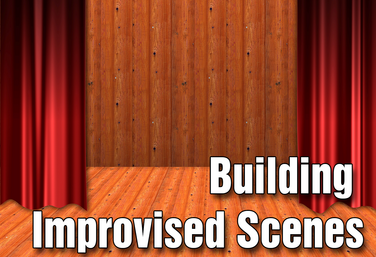
UNIT
Part of the Middle School Curriculum
Unit Three: Building Improvised Scenes
by Lindsay Johnson
Students will understand the basic building blocks of a scene: The Who (characters/ relationship), the Where (setting), and the What (conflict – objectives/tactics). They will learn how to use both verbal and nonverbal (pantomime) clues to communicate these scene details to an audience. They will continue to work on voice clarity, while also learning to open their body to an audience. The unit culminates in a performance assessment in which students work in pairs to improvise a scene.
Read More
about Unit Three: Building Improvised Scenes
Read Less
about Unit Three: Building Improvised Scenes
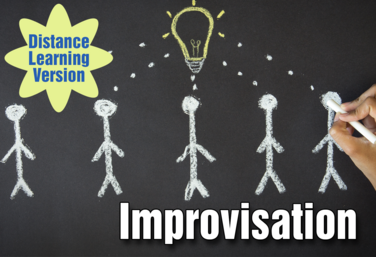
UNIT
Part of the Distance Learning Curriculum
Improvisation
by Lindsay Price and Karen Loftus
Students sharpen their listening and reaction skills through improv games, exercises, and scenes. They will learn five specific guidelines to apply to their improvisation: accept the offer, bring information to the scene, make active choices, make your partner look good, and don’t force the humor.
Read More
about Improvisation
Read Less
about Improvisation
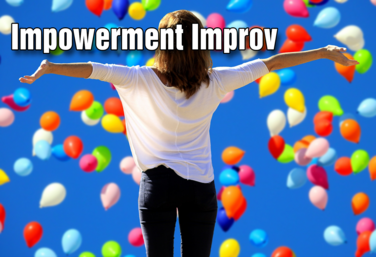
UNIT
Impowerment Improv
by Jennine Profeta
Taking risks, learning to see failure as a gift, finding courage when we don't feel it, and having the awareness that what we say has an impact are social and emotional skills students will take beyond the classroom. These are skills that can be built through improv exercises.
The exercises in this unit are designed to create a safe environment in which students can go beyond their old patterns to take risks, embrace failure, and be more confident and aware of the effects of their word choices. Improv gives you the opportunity to draw attention to these important concepts and to talk about them.
Read More
about Impowerment Improv
Read Less
about Impowerment Improv
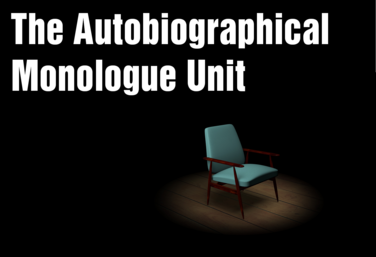
UNIT
The Autobiographical Monologue
by Gai Jones
All students have something to say and a story to tell. They can relate to their personal stories better than anyone else. All students have a lot of material which can be used as part of an original monologue.
In this unit, students will write an autobiographical monologue based on their personal expertise, memories, distinct point of view, sense of truth, and life experiences.
Through the process, students will be encouraged to explore past stories, objects, and images and other personal material.
Read More
about The Autobiographical Monologue
Read Less
about The Autobiographical Monologue
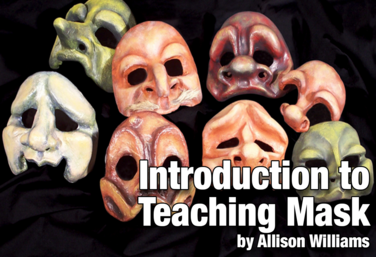
UNIT
Introduction to Mask
by Allison Williams
This unit focuses on having students gain an understanding of basic physical acting and learn some specific tools to use in mask work. Instructor Allison Williams has developed this unit, and explains "What I love most about mask work is how, by having students cover their faces, they are able to find freedom to express themselves physically. They often make bigger choices than we’re normally used to seeing them make in class."
In this unit, students will work step by step from identifying shapes in the mask to using those shapes to creating a character zero to learning how to move in the mask utilizing the qualities of movement to applying everything they’ve learned in short scenes. The unit will culminate with students working in pairs to create original mask scenes.
You will need masks to complete the unit. And while mask-making can be a lot of fun, it’s a lengthy and messy project. A list is provided in the Overview of where you may be able to buy or rent masks for use in your classroom.
Read More
about Introduction to Mask
Read Less
about Introduction to Mask
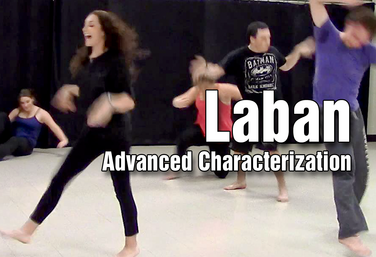
PD COURSE
Laban: Advanced Characterization
by Todd Espeland
Learn about the Laban system to teach your students to physically and vocally discover character. This is an advanced course, which means that the course goes deep into exploring character and exploring character work through the work of Rudolph Laban.
Read More
about Laban: Advanced Characterization
Read Less
about Laban: Advanced Characterization
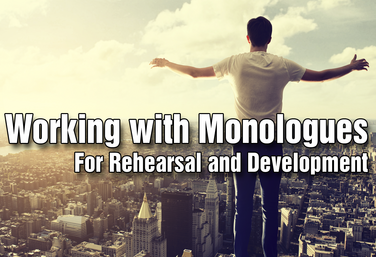
PD COURSE
Working With Monologues For Rehearsal And Development
by Gai Jones
In "Working With Monologues For Rehearsal And Development" you will develop ten sessions of study on monologues. The study contains the definition and history of the monologue; monologue vocabulary; analysis of a practice monologue, staging a short monologue; working with musical theatre lyrics as a monologue; writing short autobiographical monologues.
At the end of this course, you will have a curriculum which can be used as introduction to monologue work.
Read More
about Working With Monologues For Rehearsal And Development
Read Less
about Working With Monologues For Rehearsal And Development
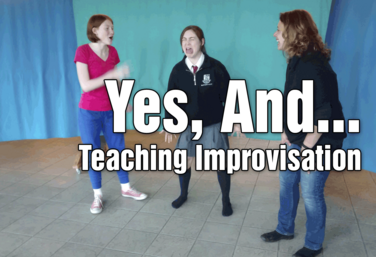
PD COURSE
Yes, And... How to Teach Improv
by Jennine Profeta
“Yes, and…” is the guiding principle behind all improv. This course will teach you how to teach improv, and more importantly how to give feedback to your students. The course looks at making strong offers and also using gibberish to ironically improv communication skills. You will also see how feelings can safely be used to add flavour and get laughs in our scenes.
Jennine Profeta, Second City performer and theatre educator, leads this course with a clear methodology for teaching and giving positive nurturing feedback. This course will give you all the tools and the insight you need to teach improv with confidence.
Read More
about Yes, And... How to Teach Improv
Read Less
about Yes, And... How to Teach Improv
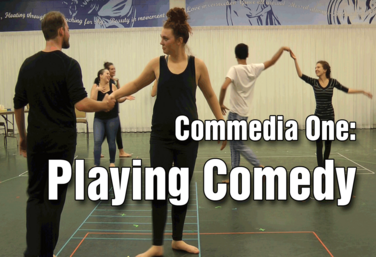
PD COURSE
Commedia I: Playing Comedy
by Todd Espeland
Commedia dell’arte is a 16th Century masked acting form. It’s the basis of all comedy and it’s a form that many teachers want to include in their curriculum.
Instructor Todd Espeland has designed two courses that work hand-in-hand with teaching this fantastic physical form.
In Commedia I: Playing Comedy - Todd teaches the principles of comedy through four key elements: status, appetite, swing, and intention/invention. This course provides an excellent foundation upon which to explore Commedia to its fullest. Includes bonus videos, handouts, reflections, and exit slip question ideas for each lesson.
Read More
about Commedia I: Playing Comedy
Read Less
about Commedia I: Playing Comedy
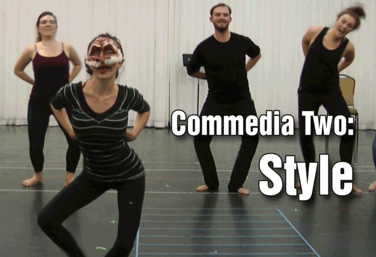
PD COURSE
Commedia II: Style
by Todd Espeland
Commedia dell’arte is a 16th Century masked acting form. It’s the basis of all comedy and it’s a form that many teachers want to include in their curriculum.
Instructor Todd Espeland has designed two courses that work hand-in-hand with teaching this fantastic physical form.
In Commedia II: Style - Todd moves on to the specific style of Commedia dell’arte. This includes a history of commedia, the stock characters and how to physicalize them, sample lazzi and a capstone assignment. The course includes video demonstrations so you can see the exercises and activities in action.
Read More
about Commedia II: Style
Read Less
about Commedia II: Style
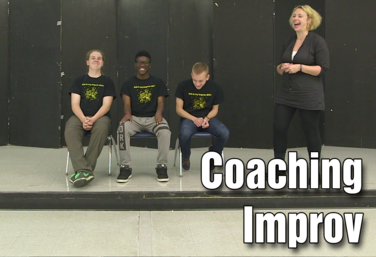
PD COURSE
Coaching Improv
by Jennine Profeta
Second City performer and theatre educator Jennine Profeta is back and ready to help you take your Improv classes to the next level. It’s all getting students to perform - and how to be a great improv coach who can keep them supported and grounded (and having fun!)
In this course, you’ll learn the golden rules of improv. You’ll learn a bunch of improv games (great for warm-ups, teaching tools, and even for competitions). You’ll learn Jennine’s tips and tricks for what to look for when coaching and how to troubleshoot common issues.
The course is designed to help you improv as an ensemble and give you the know-how to coach with confidence whether it’s in the classroom or on the stage!
Read More
about Coaching Improv
Read Less
about Coaching Improv
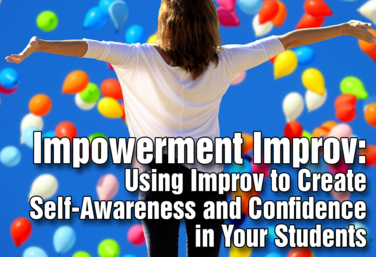
PD COURSE
Impowerment Improv
by Jennine Profeta
Jennine Profeta, Second City performer and theatre educator, leads this course. This course was designed to give a teacher tools to create a safe environment in which students can go beyond their old patterns to take risks, embrace failure, be more confident and aware of the effects of their word choice. The course includes modules on risk-taking, creating a safe environment, failure, confidence, and positive/negative speak.
Read More
about Impowerment Improv
Read Less
about Impowerment Improv
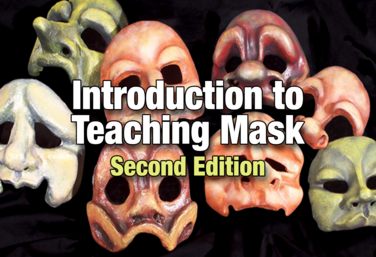
PD COURSE
Introduction to Teaching Mask: 2nd Edition
by Allison Williams
In Introduction to Teaching Mask: 2nd Edition, Allison Williams gives you a toolkit of mask and movement exercises to teach students to make big, confident physical choices, to work in their bodies, and play different characters - masked and unmasked.
By working through the exercises in this course, you, the teacher, will also gain an understanding of basic physical acting and learn some easy specific tools to coach your students – not just in mask, but in all their performance work.
Access to masks is required, but previous experience with masks is not.
Read More
about Introduction to Teaching Mask: 2nd Edition
Read Less
about Introduction to Teaching Mask: 2nd Edition
View all Standards for Alberta, Canada Standards Master List